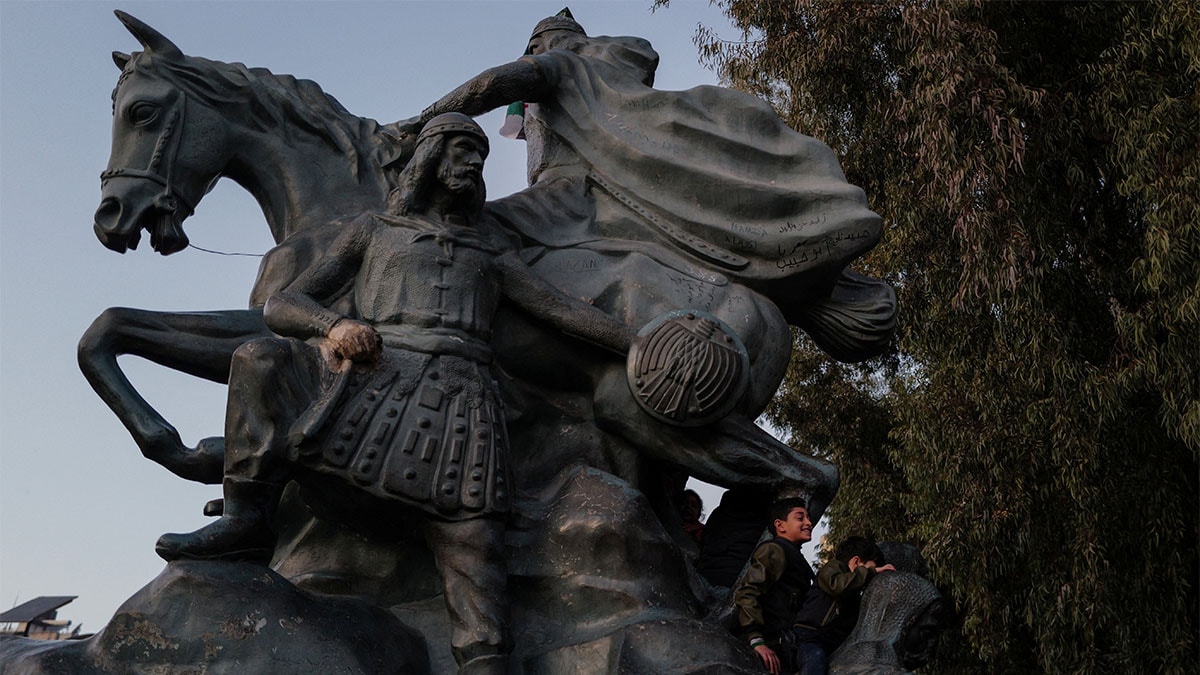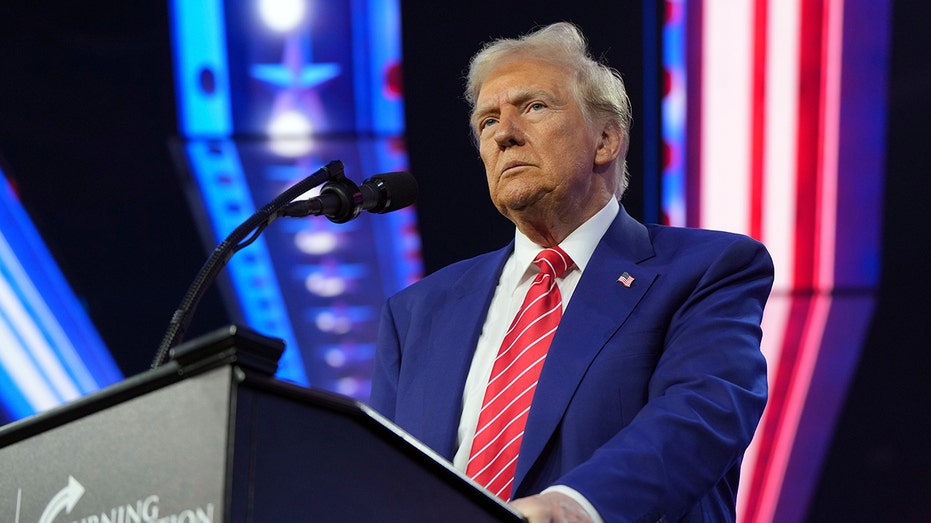
On December 8, 2024, a ‘New Syria’ was born. The rebel offensive that began late last month took down the last remnants of Ba’athism from the Levant, ending the 54-year-long rule of the Assad family. The dramatic fall of the Assad regime and the takeover of the Syrian capital by the rebel forces came as a big surprise for everyone.
Bashar al-Assad’s military and security institutions collapsed without much of a fight. Many analysts are interpreting Assad’s fall as a rebirth of the ‘Arab Spring’, but only time will tell whether the spirit of the revolution is adhered to and leads to a more prosperous and democratic Syria or the revolutionary fervour is manipulated and put upside down. All sane and democratic forces would never want Syria to become another Iraq or Libya, but there is no dearth of spoilers when it comes to the Middle East.

The Syrian uprising deserves to bloom into a beautiful spring. Although the opposition forces have spread reassuring messages regarding the protections of rights of the Syrians, including minorities, and have also asked refugees to return back to Syria, the future of post-Assad Syria seems uncertain or unpredictable as of now. After 13 years since the start of the Arab uprisings, Syria has become a new hope for democracy in the Arab world.
In the past few days, Syrians belonging to different sects and creeds have displayed a remarkable sense of unity and shown interest in an inclusive and democratic Syria where people’s aspirations and rights are respected. However, the long civil war has completely devastated the country and widened the ethnic, religious, or sectarian fault lines in the country. Syrians would need to rebuild the country and institutions before they can realise a better democratic future for themselves.
There are too many factions and forces within Syria whose actions might derail the prospects of a prosperous and peaceful Syria. Then there are regional Arab states that, in the pursuit of their own narrow interests, would want to see a puppet Sunni regime in Syria that is dependent on Gulf money or passively subservient to them. The Gulf monarchies, especially the UAE or Saudi Arabia, would do everything possible to sabotage efforts to create an Arab democracy in their backyard.
They are likely to treat a future democratic Syria as a threat to their own authoritarian regimes in the long term. In the past, they have played a counter role in Egypt, Libya, or even Sudan after the popular uprisings toppled the dictatorial regimes in these Arab countries. The UAE, in particular, has also been supporting Kais Said’s power grab in Tunisia, diminishing the prospects of democracy taking root there.
The raison d’être of the Al-Sisi regime in Egypt isn’t in supporting the Syrian revolution. Sisi knows Syrian events could have a domino effect and threaten his own regime. It’s heard that ever since Assad’s fall, Sisi has increasingly become anxious.
However, Turkey, because of its strategic location and closeness to the Syrian opposition forces that toppled the Assad regime, will play a crucial role in determining the political future of Syria. Theoretically, Turkey is the only Muslim democracy in the Middle East, and Syria is geopolitically significant for its national interests, including its security concerns on Syria’s northern borders. Throughout the course of the Syrian civil war, Recep Tayyip Erdogan found himself in the anti-Assad camp.
This was primarily because Erdogan’s government supported the anti-Assad opposition and Islamist groups in Syria. The problem with Assad was further aggravated by the influx of approximately four million Syrian refugees fleeing the war. The presence of Syrian refugees later became a thorny issue in Turkey’s domestic politics, which has recently cost Erdogan and his AKP in the local elections.
However, a bigger problem for Turkey was the presence of the Kurdistan Workers’ Party (PKK) and its Syrian counterparts, such as the People’s Defence Units (YPG), which have been treated as a national security concern in Turkey. The civil war in Syria immensely increased the power of the Kurd separatists who controlled vast areas in the east and northeast of the country. Lately, Kurds in Syria had also cultivated a strategic understanding with the Assad regime to target Turkish interests and the Syrian National Army (SNA) supported by Erdogan’s government.
The SNA continues to fight against Kurd fighters even after Assad’s fall. All this generated a lot of hostility between Bashar al-Assad and Recep Erdogan and became a prime reason for their frozen relations even when most Arab or Gulf countries had rehabilitated the dictatorship of Assad and restored diplomatic relations. In the meantime, Turkey expanded its reach within the Syrian opposition and cultivated contacts with the Islamist groups such as Hay’at Tahrir al-Sham (HTS), which recently spearheaded the militant offensive against the Assad regime.
Now that Assad is gone and Turkey has emerged as a clear winner in Syria, as many analysts believe, Erdogan has a historic opportunity to play a constructive role in the evolution of a peaceful, prosperous, and democratic Syria. Turkey can do this by encouraging dialogue within the Syrian opposition camp and also seeking favourable policy measures from the incoming Donald Trump administration; it will also have to find a solution to the Kurdish issue while seeking a safe return of millions of Syrian refugees back to their home country. This is important in the context that the rebels have spread reassuring messages regarding the return of refugees and also the safety of all minorities.
The Syrian people across sects have also seemingly come out united in celebrating the ouster of the Assad family and expressed hopes for an inclusive administration in a united Syria. Seeking a democratic transition in the post-Assad Syrian regime can boost Turkey’s image among Arab populations across the region and enhance its standing with its Western partners, including the US. Donald Trump has already recognised the role Turkey played in Assad’s ouster.
Turkey is in a position to enlist US support against terrorist organisations such as ISIS in Syria and help rebuild the war-ravaged country. If Syria descends into chaos and violence again, it would be a threat of historic proportions for Turkey and other neighbouring countries in the region. Since Turkey has gained a lot of mediating power and channels of communication in the post-Assad regime in Syria, it can constructively engage the European Union too in support of a peaceful and democratic transition in Syria.
Interestingly, EU Commission president Ursula Leyen, during her recent visit to Ankara, had emphasised and recognised the critical role that Turkey can play in a peaceful transition in Syria in which aspirations of Syrians of all sects are respected. The EU and Turkey can make it clear to the opposition groups to shun violence and extremism and initiate dialogue among themselves. While Turkey has an important role to play in post-Assad Syria, it must tread carefully.
It shouldn’t be blinded by its strategic victory in Syria. It can’t also afford to antagonise the neighbouring Arab countries. Their support for a peaceful transition and reconstruction efforts in Syria is essential.
If their concerns aren’t heard, they have the potential to become spoilers. We have witnessed it in Libya, Sudan, or Yemen. Erdogan can help revive the Astana process and bring Russia and the Iranians to the table again in support of a peaceful transition in Syria.
Finally, Turkey must not push its hostility toward Kurdish rebels beyond a point. Kurd-led Syrian Democratic Forces, which have been backed by the Americans, have the potential to derail the entire transition process in Syria. Liyaqat Nazir is a doctoral fellow at the School of International Studies, Jawaharlal Nehru University, New Delhi.
The views expressed in the above piece are personal and solely those of the author. They do not necessarily reflect Firstpost’s views..















